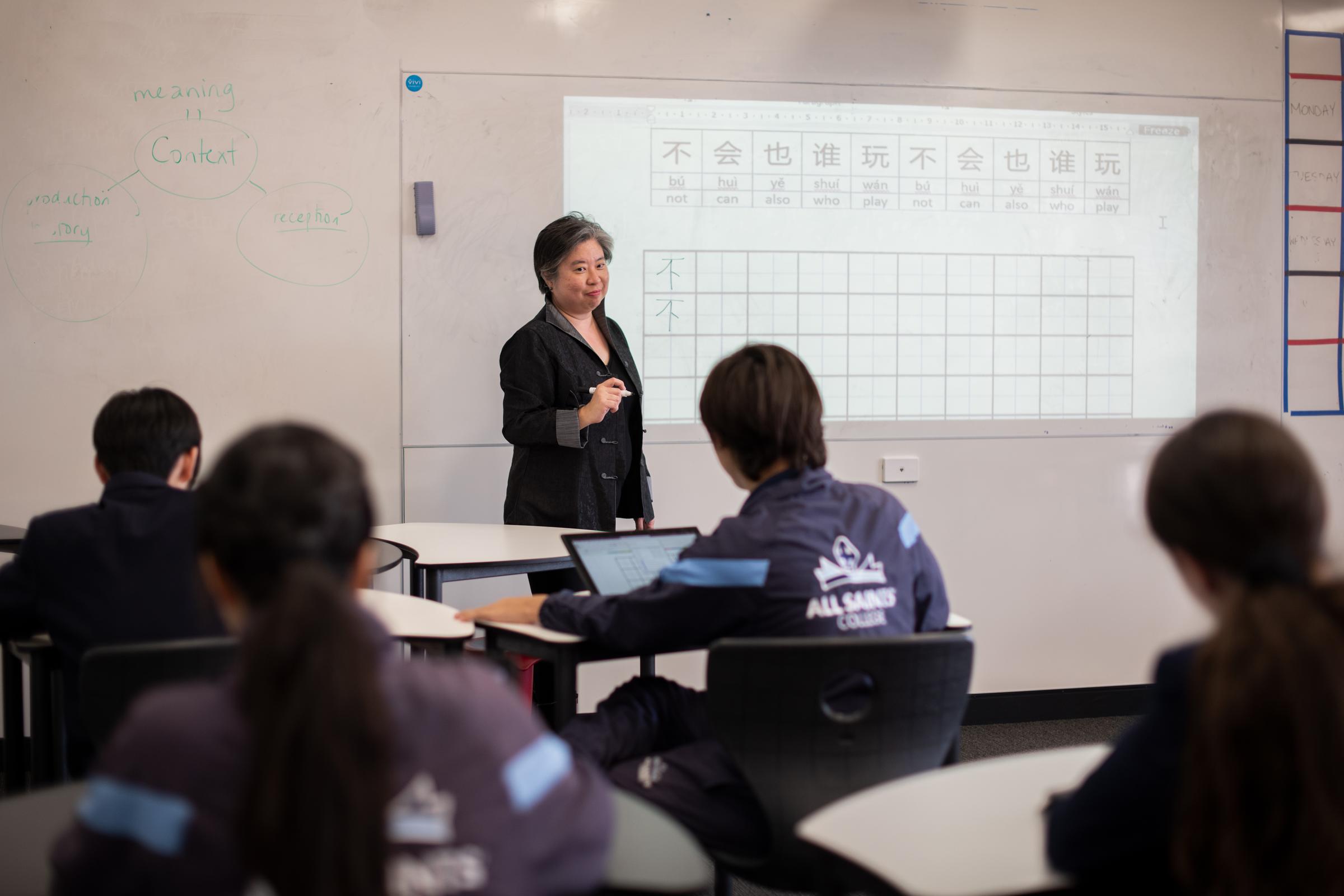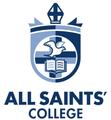LANGUAGES LEARNING AREA

FRENCH: SECOND LANGUAGE – ATAR COURSE and/or
VOCATIONAL EDUCATION AND TRAINING (VET) PATHWAY – CERTIFICATE III IN APPLIED LANGUAGE
An ability to communicate in French provides opportunities for students to learn about the rich and diverse French culture, traditions and belief systems. In the French course, students analyse, process and respond to texts to understand aspects of the language and culture of a range of French-speaking communities throughout the world.
The French: Second Language ATAR course is designed for students who do not have a French background—that is, students who have learnt the majority of the French they know in an Australian school or similar environment.
The VET pathway caters for second language and background students. Certificate III in Applied Languages is achieved upon completion of Year 11 and Year 12 study of French. Students enrolled in Year 11 French can choose to pursue only the VET pathway or the ATAR pathway with the additional VET Certificate embedded in the ATAR course.
In the French course, students develop the skills and knowledge to communicate in French. Communication is facilitated through the achievement of four outcomes.
Outcome 1: Listening and responding
Outcome 2: Spoken interaction
Outcome 3: Viewing, reading and responding
Outcome 4: Writing
Note: To enrol in the Year 11 ATAR Units, students need to have successfully completed Year 10 French or equivalent.
To enrol in the Certificate III, students need to have successfully completed Applied Language (French) Certificate II.
Students subscribe to the Education Perfect online language learning site.
A consumables charge will be applied to this course. This will be charged in addition to Tuition Fees.
YEAR 11
Unit 1
This unit focuses on C’est la vie ! (That’s life!). Through the three topics: My daily routine, French sports and leisure, and Leading a healthy lifestyle, students further develop their communication skills in French and gain a broader insight into the language and culture.
Unit 1 is organised around three learning contexts and a set of three topics:
| Learning Contexts | Topics |
The individual
| My daily routine Students reflect on their daily routine at home and school and popular activities: sport and socialising in their lives and the lives of young French people. |
| The French-speaking communities | French sports and leisure Students consider popular traditional and modern sports and leisure activities enjoyed by French people. |
The changing world
| Leading a healthy lifestyle Students consider current issues in the global community that relate to healthy living, the importance of physical activity and maintaining a well-balanced lifestyle. |
Unit 2
The focus for this unit is Voyages (Travel). Students further develop their skills, knowledge and understandings through the study of the unit content. They extend their communication skills in French and gain a broader insight into the language and culture.
Unit 2 builds on the content covered in Unit 1 and is organised around three learning contexts and a set of three topics:
| Learning Contexts | Topics |
The individual
| My travel tales and plans Students reflect on their own travel tales and discuss what is essential when planning a trip and travelling at home and abroad. |
The French-speaking communities
| Australia as a travel destination Students explore Australia as a destination for French-speaking travellers and discuss how they would prepare a French speaker for a trip to Australia. |
The changing world
| Travel in a modern world Students consider how technology is changing world travel, influencing the way people plan their holidays, and how they communicate with others while away. |
Year 12
Unit 3
This unit focuses on Les médias (The media). Through the three topics: Technology and Me, Film and Music, and In the media, students extend and refine their
communication skills in French and gain a broader and deeper understanding of the
language and culture.
| Learning Contexts | Topics |
The individual
| Technology and me Students reflect on the role of technologies in their lives and in the lives of young people in French-speaking communities. |
The French-speaking communities
| Film and Music Students develop an insight into the cultures and lifestyles of the French-speaking communities through examples of francophone films, film clips and music. |
The changing world
| In the media Students consider the media and its impact on the global community. |
Unit 4
This unit builds on the content covered in Unit 3 The focus for this unit is Le monde qui nous entoure (The world around us) and is organised around three learning contexts with three prescribed topics:
| Learning Contexts | Topics |
The individual
| Planning my future Students reflect on their plans for the future. |
The French-speaking communities
| Migrant Experiences Students explore the accounts of French-speaking migrants to and from French-speaking communities, to consider reasons for migration, and experiences of participating in a new community. |
| The changing world | Youth Issues Students consider global youth issues related to coping with pressures such as stress, drugs and alcohol. |
Students subscribe to the Education Perfect online language learning site.
A consumables charge will be applied to this course. This will be charged in addition to Tuition Fees.
CHINESE: SECOND LANGUAGE – ATAR COURSE
The Chinese: Second Language ATAR course is designed to further develop students’ knowledge and understanding of the culture and the language of Chinese-speaking communities, providing them with opportunities to gain a broader and deeper understanding of Chinese and extend and refine their communication skills.
The course focuses on the interrelationship of language and culture, and equips students with the skills needed to function in an increasingly globalised society, a culturally and linguistically diverse local community, and provides them with the foundation for life-long language learning. Relevant and engaging tasks, delivered through a range of appropriate contexts and topics, develop literacy in the Chinese language as well as extend literacy development in English.
The Chinese: Second Language ATAR course is designed to facilitate achievement of the following outcomes.
Outcome 1 – Listening and responding
Outcome 2 – Spoken interaction
Outcome 3 – Viewing, reading and responding
Outcome 4 – Writing
Year 11
Unit 1
The focus for this unit is 青少年 (Teenagers). Students build on their skills, knowledge and understandings through the study of the unit content. They further develop their communication skills in Chinese and gain a broader insight into the language and culture.
Unit 1 is organised around three learning contexts and a set of three topics:
| Learning Contexts | Topics |
The individual
| Having Fun Students reflect on their favourite activities: sports, going out, and socialising. |
The Chinese-speaking communities
| Student’s daily life Students explore the daily routines of young Chinese speakers: school, interests, and social activities.
|
| The changing world | Technology and leisure Students consider the impact of technology on the lives of young people around the world. |
Note: To enrol in the Year 11 ATAR Units, students need to have successfully completed Year 10 Chinese or equivalent.
Unit 2
The focus for this unit is 我们去旅行 吧! (Travel – let’s go). Students further develop their skills, knowledge and understandings through the study of the unit content. They extend their communication skills in Chinese and gain a broader insight into the language and culture.
Unit 2 builds on the content covered in Unit 1 and is organised around three learning contexts and a set of three topics.
| Learning Contexts | Topics |
The individual
| Tales of travel Students reflect on their own travel experiences and plans and discuss what is essential when planning a trip and travelling at home and/or abroad. |
The Chinese-speaking communities
| Western Australia as a travel destination Students explore Western Australia as a destination for Chinese-speaking travellers and discuss how they would prepare a Chinese speaker for a trip to Western Australia. |
| The changing world | China as a travel destination Students consider China as a tourist destination. |
Students subscribe to the Education Perfect online language learning site.
A consumables charge will be applied to this course. This will be charged in addition to Tuition Fees.
Year 12
Unit 3
The focus for this unit is 目前情况 (Here and now). Students expand their skills, knowledge and understandings through the study of the unit content. They extend and refine their communication skills in Chinese and gain a broader and deeper understanding of the language and culture.
| Learning Contexts | Topics |
The individual
| Relationships Students reflect on the different relationships in their lives |
The Chinese-speaking communities
| Celebrations and traditions Students explore major celebrations, traditions and festivals in Chinese communities..
|
| The changing world | Communicating in a modern world Students consider how the internet, mobiles, social networking and other technologies are used in building and maintaining relationships. |
Unit 4 Description
The focus for this unit is 有什么打算? (What next?). Students consolidate their skills, knowledge and understandings through the study of the unit content. They extend and refine their communication skills in Chinese and gain a broader and deeper understanding of the language and culture.
| Learning Contexts | Topics |
The individual
| Reflecting on my life and planning my future Students reflect on their final year at school and their plans for the future: further education, employment and travel. |
The Chinese-speaking communities
| The environment Students explore current issues* in relation to the environment in Chinese-speaking communities.
|
| The changing world | Current issues Students consider issues* in the changing world relevant to them. |
*For the purpose of the ATAR written and practical examinations the issues referred to in these topics will relate specifically to:
- The environment
- land pollution (waste)
- water pollution
- air pollution
- Current issues:
- impact of social media
- smoking and alcohol
- peer pressure
